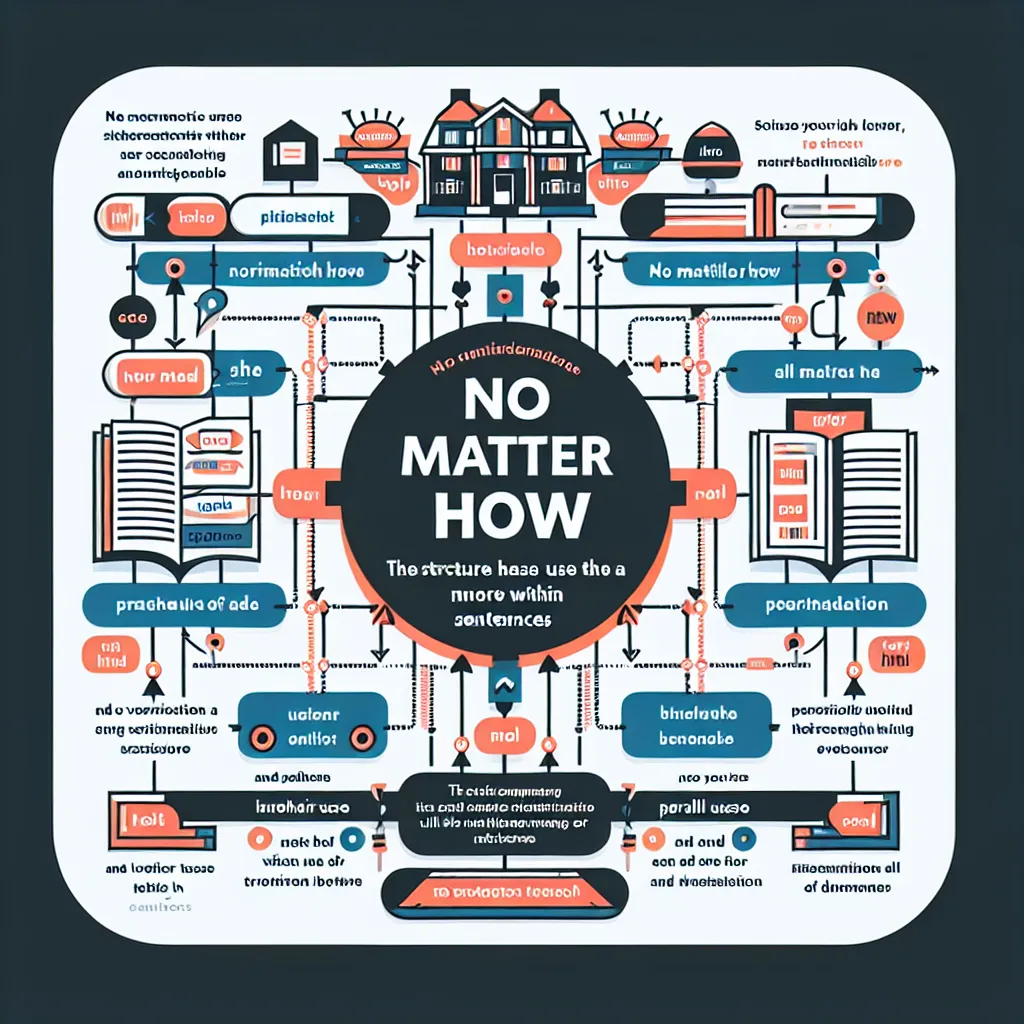Understanding and effectively using the “no matter how” structure is crucial for IELTS candidates aiming to achieve high scores. This powerful construction allows you to express ideas of contrast and concession, demonstrating a sophisticated command of English grammar. Let’s delve into the intricacies of this structure and explore how to apply it in various sections of the IELTS exam.
The Significance of “No Matter How” in IELTS
The “no matter how” structure is frequently encountered in IELTS reading passages and can be a valuable tool in writing and speaking tasks. It’s used to emphasize that something will happen or remain true regardless of the degree or intensity of another factor. Mastering this structure can elevate your language proficiency and help you express complex ideas more effectively.
Here are some examples of how “no matter how” can be used in IELTS-style sentences:
- No matter how hard she studied, she couldn’t seem to improve her IELTS score.
- The company continued to expand, no matter how challenging the economic conditions became.
- No matter how many times he practiced, he still felt nervous during the speaking test.
- The environmental activist vowed to continue her campaign, no matter how much opposition she faced.
- No matter how advanced technology becomes, human creativity will always be essential.
In each of these sentences, the “no matter how” clause introduces a condition that does not affect the outcome expressed in the main clause.

Grammar and Usage: Mastering “No Matter How”
Formula and Grammatical Structure
The basic formula for using “no matter how” is:
No matter how + adjective/adverb + subject + verb, + main clause
It’s important to note that “no matter how” is followed by an adjective or adverb, not a noun. The structure is equivalent to “regardless of how” or “however” + adjective/adverb.
Let’s break down a few examples:
- No matter how difficult (adjective) the exam (subject) is (verb), I will do my best to pass it (main clause).
- No matter how quickly (adverb) she (subject) speaks (verb), I can understand her accent (main clause).
- No matter how (adverb) late (adjective) it (subject) gets (verb), we must finish this essay (main clause).
Application in IELTS Writing
In IELTS Writing Task 2, using “no matter how” can help you express complex ideas and show a range of grammatical structures. For example:
-
In an essay about technology and education:
“No matter how advanced online learning platforms become, face-to-face interaction will always play a crucial role in education.” -
Discussing environmental issues:
“No matter how much we reduce individual carbon footprints, significant change can only occur through corporate and governmental action.”
Enhancing IELTS Speaking Responses
In the Speaking test, using “no matter how” can demonstrate your ability to express contrast and concession fluently:
Examiner: “Do you think it’s important to persevere in the face of challenges?”
Candidate: “Absolutely. I believe that no matter how difficult a situation may seem, perseverance is key to overcoming obstacles and achieving our goals. For instance, no matter how many setbacks I faced while preparing for IELTS, I remained determined to improve my English skills.”
Advanced Usage for Higher Band Scores
To aim for higher band scores (7+), consider these advanced applications:
-
Combine with other complex structures:
“No matter how diligently one prepares, the unpredictable nature of the IELTS speaking test means that candidates must also be adaptable and think on their feet.” -
Use in conditional sentences:
“Even if the government were to implement stricter regulations, pollution levels would likely remain high no matter how severe the penalties might be.” -
Incorporate into reported speech:
“The researcher concluded that, no matter how extensively they studied the phenomenon, certain aspects remained inexplicable.”
Common Mistakes to Avoid
-
Using a noun after “no matter how”:
Incorrect: ❌ No matter how the difficulty, I will succeed.
Correct: ✅ No matter how difficult it is, I will succeed. -
Forgetting the main clause:
Incorrect: ❌ No matter how hard he tried.
Correct: ✅ No matter how hard he tried, he couldn’t solve the problem. -
Using the wrong word order:
Incorrect: ❌ How no matter difficult the task is, I will complete it.
Correct: ✅ No matter how difficult the task is, I will complete it. -
Confusing with “no matter what”:
Incorrect: ❌ No matter how he does, his parents will be proud.
Correct: ✅ No matter what he does, his parents will be proud.
Conclusion
Mastering the “no matter how” structure can significantly enhance your IELTS performance across all sections of the test. By incorporating this versatile grammatical tool into your language repertoire, you demonstrate a sophisticated command of English, which is crucial for achieving high band scores. Remember to practice using this structure in various contexts, and always ensure that your usage is grammatically correct and contextually appropriate.
To further improve your skills, try creating sentences using “no matter how” in response to IELTS Writing Task 2 questions or practice speaking topics. This will help you internalize the structure and use it naturally during the exam. Keep in mind that while complex structures are impressive, clarity and coherence should always be your top priorities in IELTS communication.